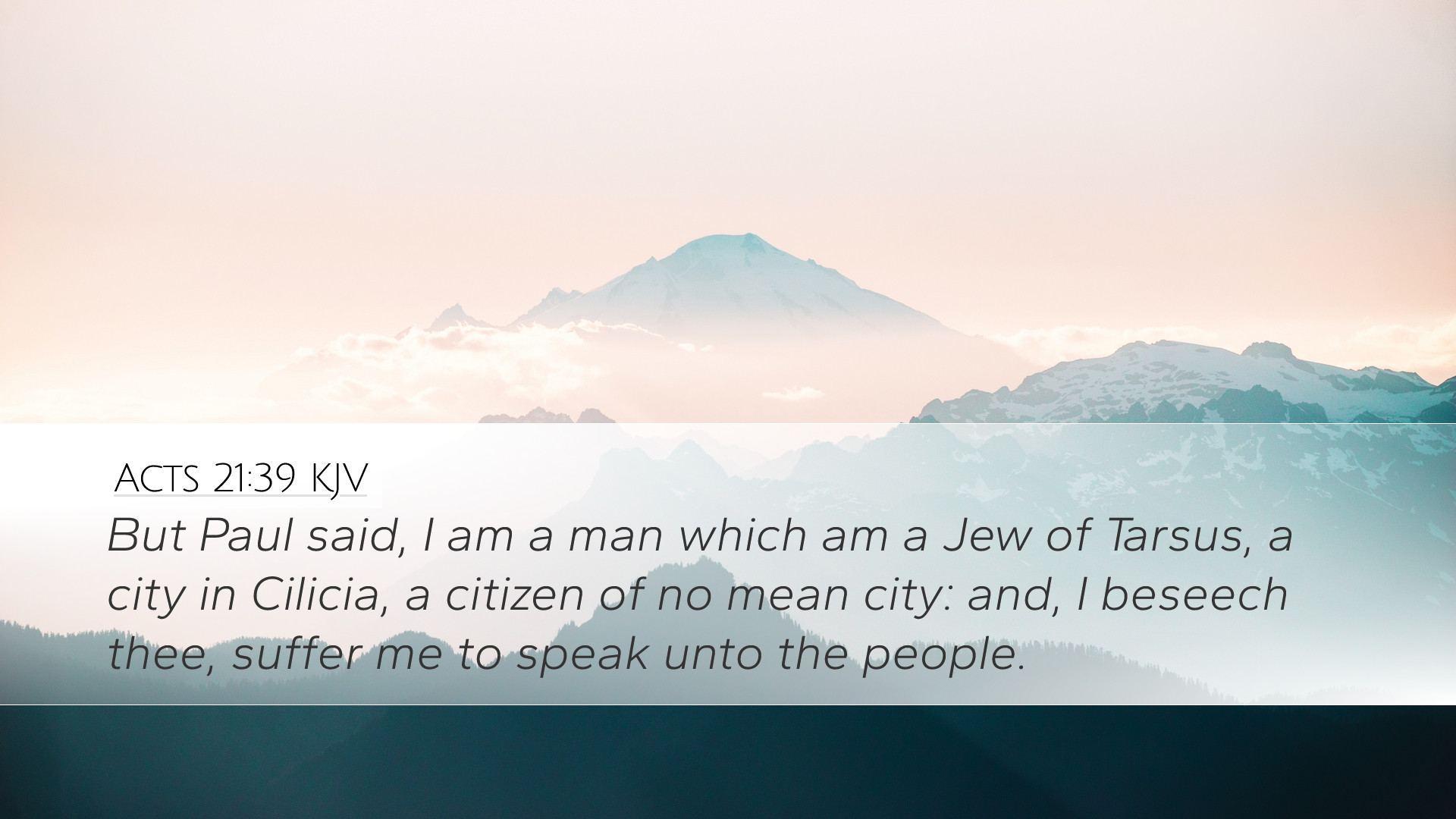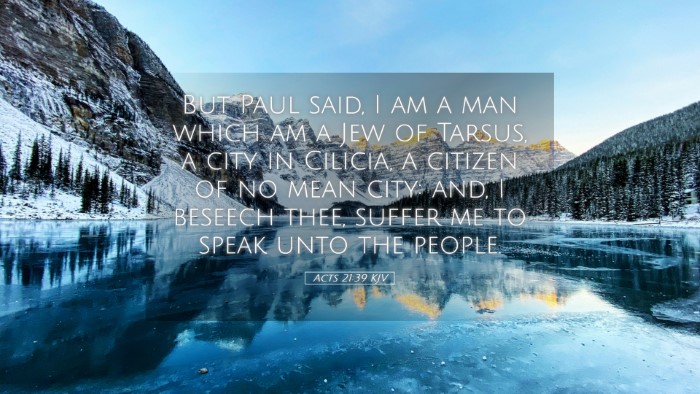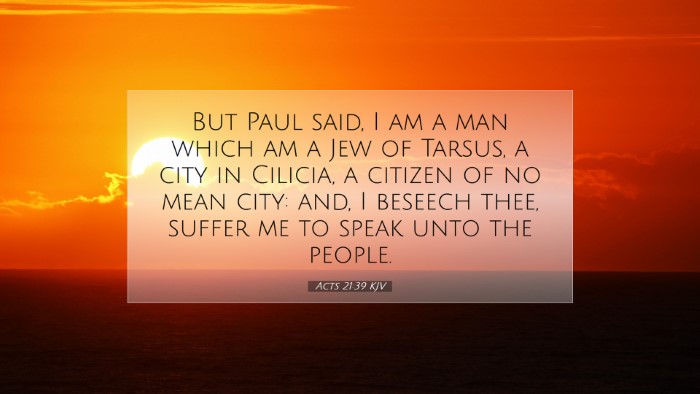Commentary on Acts 21:39
Acts 21:39 reads: "But Paul said, I am a man which am a Jew of Tarsus, a city in Cilicia, a citizen of no mean city: and, I beseech thee, suffer me to speak unto the people."
Contextual Overview
This passage takes place during a tumultuous time in Paul's ministry. He had just returned to Jerusalem, where he was accused of stirring up the Jews against the law and the temple. The narrative highlights Paul’s defense before the mob, showcasing his identity and background as foundational to the message he wishes to convey.
Exegesis and Theological Insights
The importance of Paul's identity is central to understanding this verse. By asserting his Jewish heritage and his citizenship in Tarsus, Paul is not merely establishing credibility; he is positioning himself to reach a deeply divided audience.
Paul’s Identity as a Jew
Matthew Henry emphasizes that Paul’s Jewish identity serves to connect him to his audience. Being a Jew, he appeals to their shared heritage and understandings of the law. It underscores the necessity for unity among believers from different backgrounds.
The Significance of Tarsus
Albert Barnes notes that Tarsus was a notable city in Cilicia, known for its learning and culture. Paul's claim of citizenship adds weight to his position, suggesting that he comes from a place of significance rather than obscurity. This status may invoke respect from the Roman authorities and attention from the Jewish audience.
Request to Speak
Paul's plea to speak indicates a yearning for dialogue. According to Adam Clarke, this illustrates Paul's commitment to preaching the gospel and reaching out even amidst hostility. It demonstrates his courage and desire to clarify misunderstandings regarding his ministry.
Practical Applications for Ministry
This verse can be instructive for pastors and church leaders in several ways:
- Cultural Awareness: Understanding the backgrounds of your audience can facilitate more effective communication.
- Courage in the Face of Opposition: Like Paul, ministry leaders must be prepared to stand firm in their faith and share the gospel despite challenges.
- Building Bridges: Paul’s example teaches the importance of relating to people on common ground to foster understanding and connection.
The Role of Citizenship
Paul’s mention of his Roman citizenship in subsequent verses demonstrates the dual identity he holds. This duality can be seen as a reflection of the modern believer's place in society: living in the world yet not of it. Matthew Henry notes, “The privileges of citizenship come with responsibilities, including the obligation to bear witness to the truth.”
Conclusion
Acts 21:39 serves as a powerful reminder of the importance of identity, communication, and courage in ministry. The insights drawn from historical context, cultural significance, and personal courage provide a framework for understanding how believers can effectively share the gospel in a diverse world.


